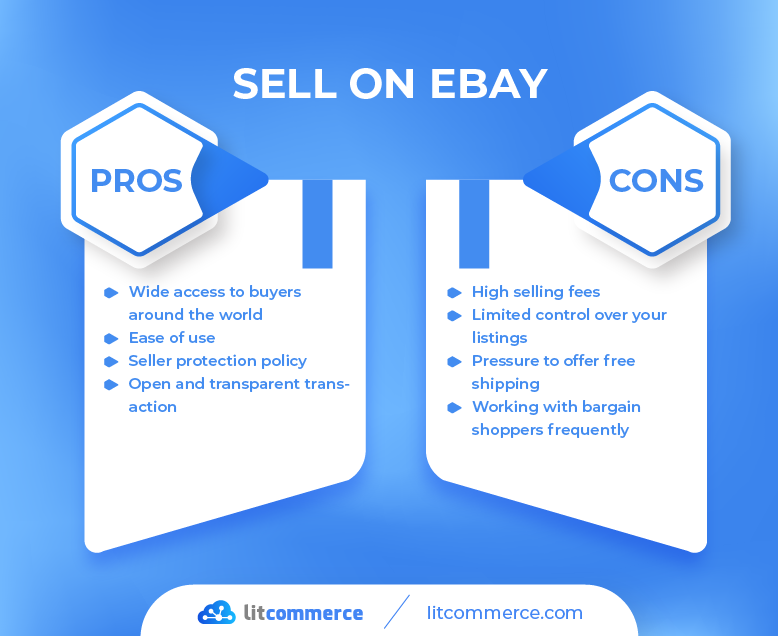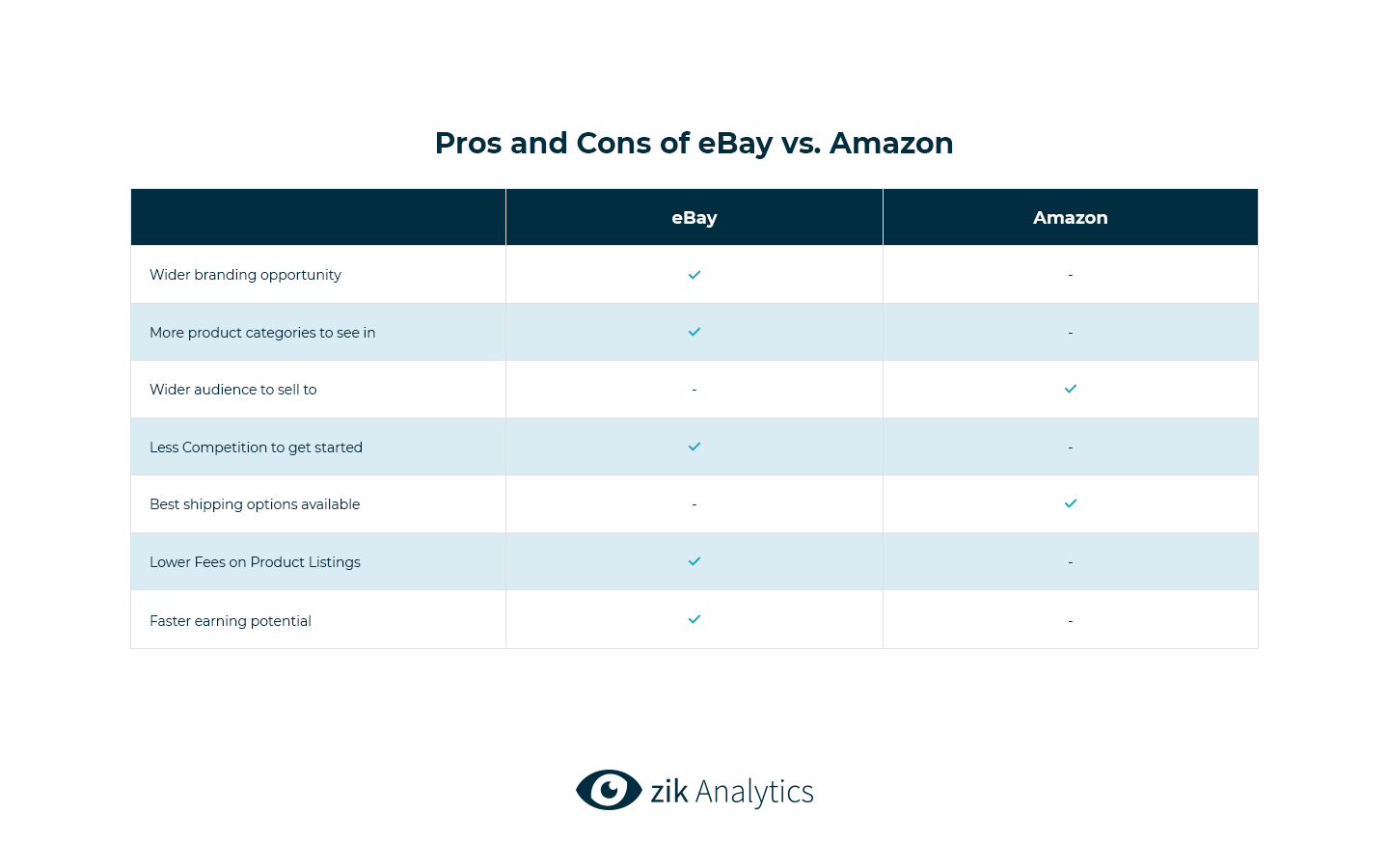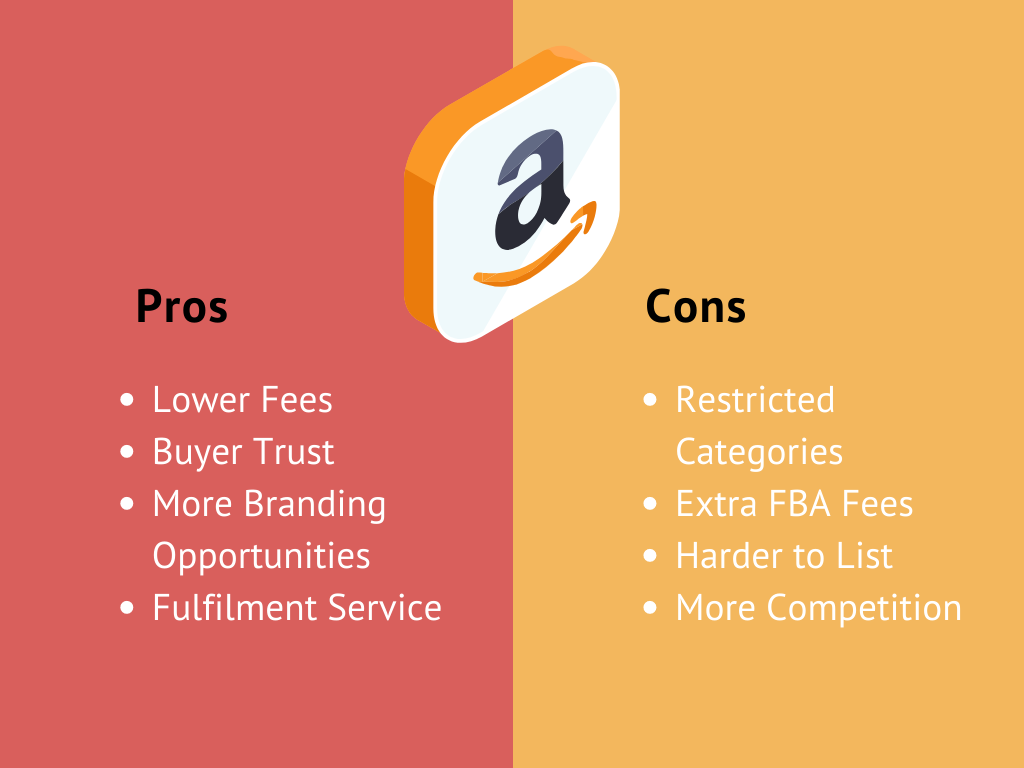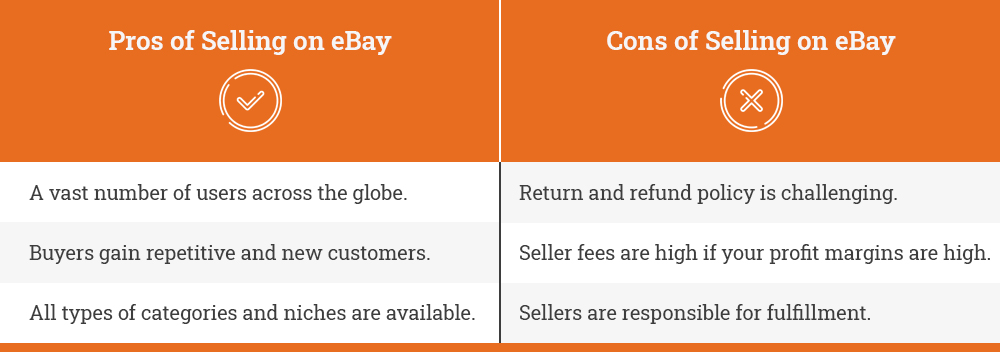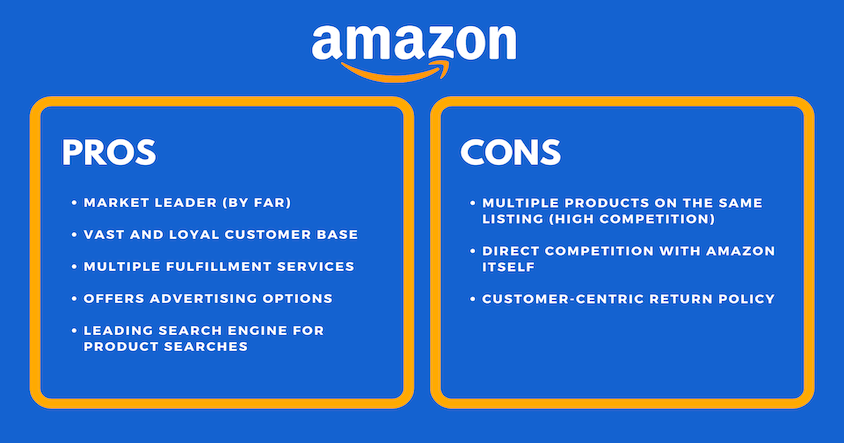Selling On Ebay Pros And Cons

In today's volatile economic landscape, the allure of online marketplaces like eBay has never been stronger. Individuals and small businesses alike are drawn to its global reach, envisioning a seamless path to turning unwanted goods into much-needed revenue. However, beneath the surface of eBay's vast marketplace lies a complex ecosystem with both considerable opportunities and potential pitfalls that sellers must navigate carefully.
This article provides an in-depth examination of the pros and cons of selling on eBay in 2024. It delves into the platform's features, fees, and challenges, offering a balanced perspective to help potential sellers make informed decisions. Drawing on data from eBay itself, industry reports, and seller testimonials, we aim to provide a comprehensive guide for anyone considering joining the platform.
The Allure of eBay: Advantages for Sellers
Unparalleled Market Access
eBay's most significant advantage is its massive user base. With millions of active buyers worldwide, sellers gain access to a global marketplace that would be impossible to replicate on their own. This exposure can significantly increase the chances of selling items quickly and at a competitive price.
According to eBay's latest annual report, the platform has approximately 132 million active buyers globally. This figure underscores the potential reach available to sellers.
Ease of Use and Accessibility
eBay's user-friendly interface makes it relatively easy for anyone to start selling. Setting up an account, listing items, and managing sales are straightforward processes, even for those with limited technical skills.
The platform also provides various tools and resources to help sellers optimize their listings and manage their businesses. These include marketing tools, shipping calculators, and customer service support.
Low Barrier to Entry
Compared to starting a traditional brick-and-mortar business or even launching an independent e-commerce store, selling on eBay requires minimal upfront investment. Sellers can start with items they already own, avoiding the need for significant capital outlay.
This low barrier to entry makes eBay an attractive option for individuals looking to supplement their income or test the waters of entrepreneurship.
Flexibility and Control
eBay offers sellers a high degree of flexibility and control over their businesses. Sellers can set their own prices, choose their shipping methods, and determine their return policies.
This autonomy allows sellers to tailor their approach to meet the specific needs of their target market and optimize their profitability.
The Challenges of Selling on eBay: Disadvantages to Consider
Fees and Costs
While eBay offers a low barrier to entry, sellers must be aware of the various fees associated with selling on the platform. These include insertion fees, final value fees, and optional fees for listing upgrades and promoted listings.
These fees can eat into profit margins, especially for sellers dealing with low-value items. Sellers need to carefully calculate their costs and price their items accordingly to ensure profitability. According to eBay's fee schedule, final value fees can range from a few percent to over ten percent depending on the product category.
Competition and Price Wars
eBay's popularity means that sellers face intense competition from other sellers offering similar products. This can lead to price wars, where sellers are forced to lower their prices to attract buyers, potentially eroding their profit margins.
Standing out from the crowd requires sellers to differentiate themselves through unique product offerings, excellent customer service, or strategic pricing.
Dealing with Problem Buyers
Unfortunately, not all buyers on eBay are honest or reasonable. Sellers may encounter problem buyers who file false claims, demand unreasonable returns, or leave negative feedback unfairly.
Dealing with these situations can be time-consuming, stressful, and potentially costly. eBay offers seller protection policies, but navigating these policies and resolving disputes can be challenging.
The Risk of Scams and Fraud
eBay, like any online marketplace, is susceptible to scams and fraud. Sellers may be targeted by scammers who use fake accounts, stolen credit cards, or other fraudulent methods to cheat them out of money or merchandise.
Sellers need to be vigilant and take precautions to protect themselves from fraud, such as verifying buyer information, using secure payment methods, and shipping items with tracking and insurance.
Changes in eBay's Policies
eBay's policies and procedures are subject to change, and these changes can sometimes negatively impact sellers. For example, eBay may introduce new fees, tighten return policies, or alter search algorithms in ways that disadvantage certain sellers.
Sellers need to stay informed about eBay's policies and be prepared to adapt to changes in order to maintain their success on the platform.
Strategies for Success on eBay
Despite the challenges, many sellers thrive on eBay by adopting effective strategies. This includes in-depth product research, professional listing photography, offering outstanding customer service and carefully evaluating shipping options.
Building a strong reputation and proactively resolving customer issues is paramount for establishing trust and customer loyalty.
The Future of Selling on eBay
eBay continues to evolve as a platform, with new features and initiatives aimed at improving the selling experience. These include investments in artificial intelligence to enhance search and personalization, and programs to support small businesses and entrepreneurs.
The company faces ongoing competition from other e-commerce giants like Amazon and specialized marketplaces. Its ability to adapt to changing market dynamics and meet the evolving needs of sellers and buyers will determine its long-term success.
Ultimately, selling on eBay can be a rewarding experience for those who are willing to invest the time and effort to learn the platform, understand its challenges, and adopt effective strategies. By carefully weighing the pros and cons, potential sellers can make informed decisions and maximize their chances of success.

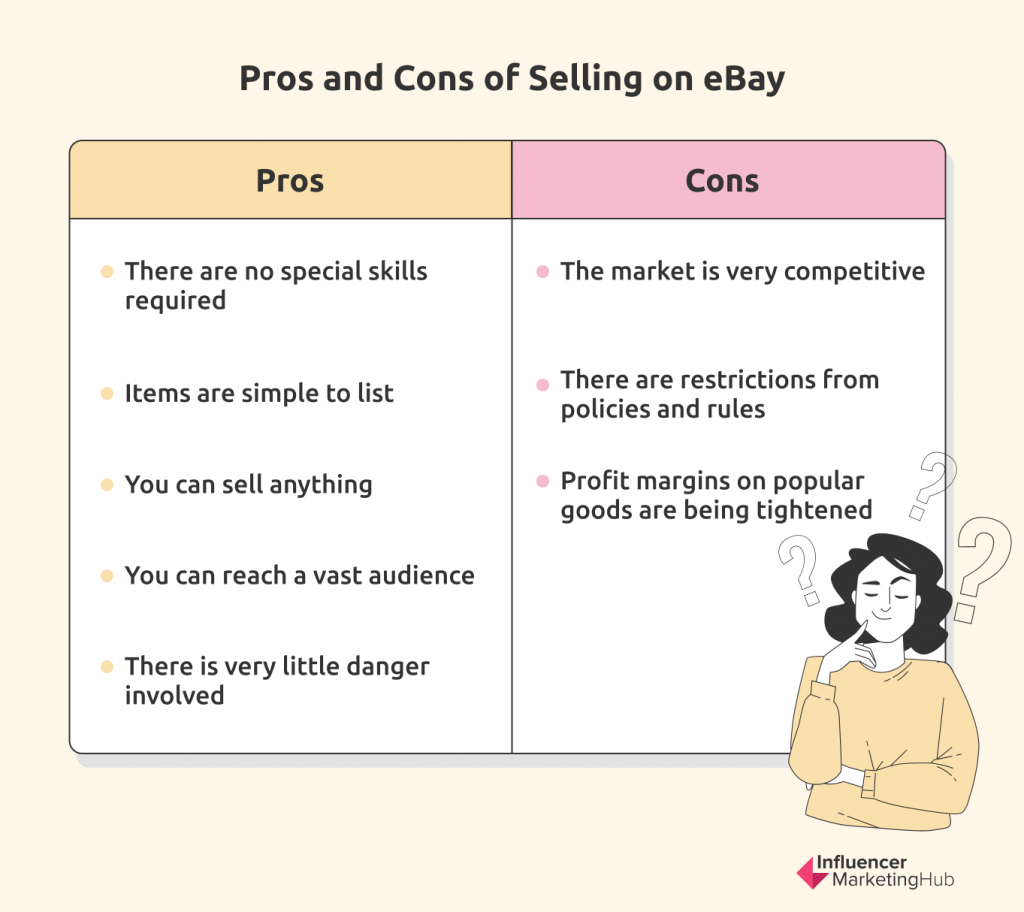






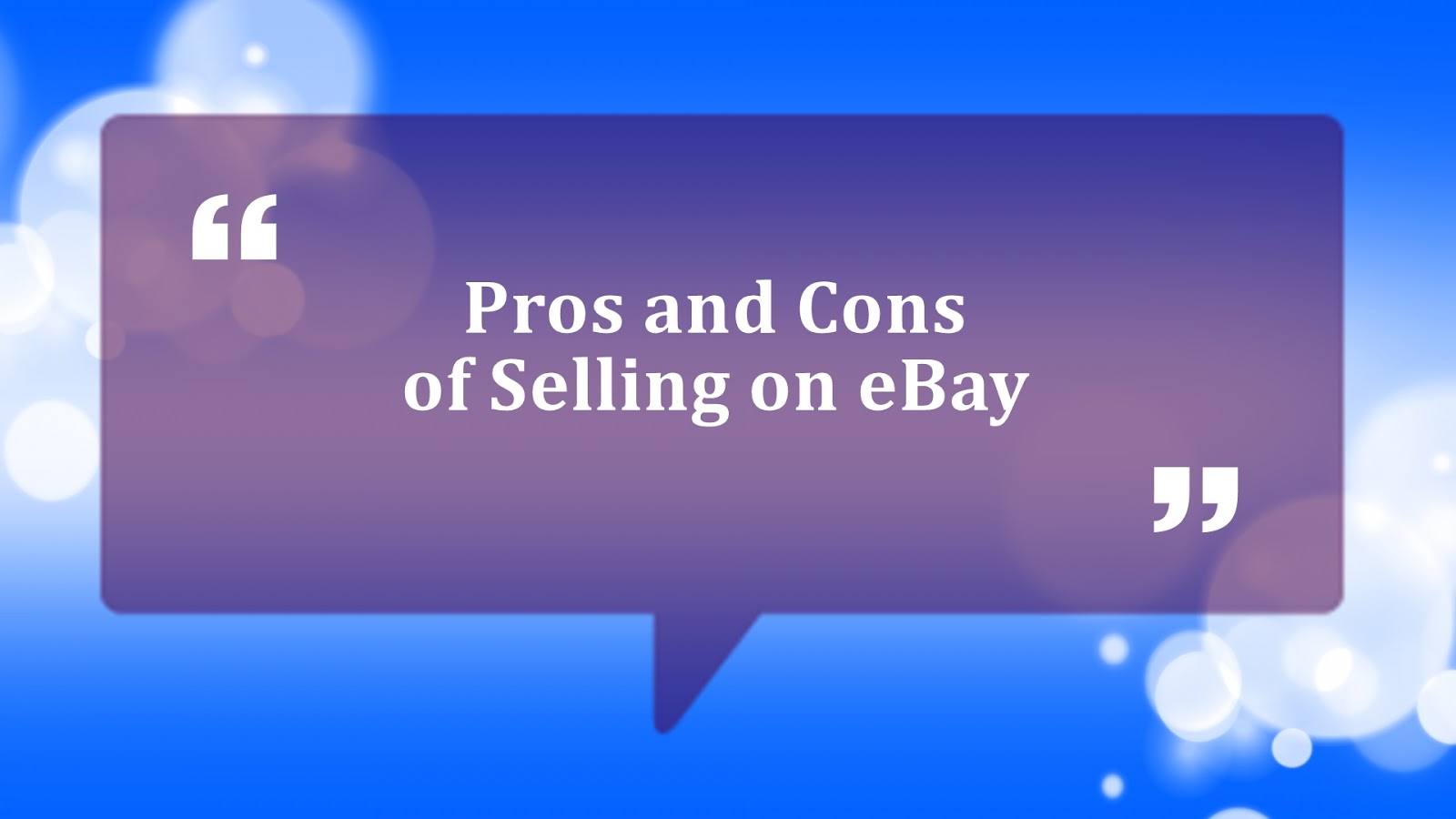
![Selling On Ebay Pros And Cons Amazon vs eBay Comparison: Which is better? [Sep 2023 ]](https://litcommerce.com/blog/wp-content/uploads/2021/09/Selling-on-ebay.webp)
